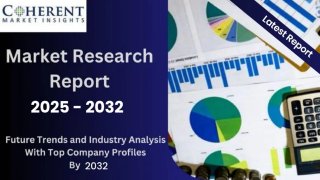Digitally-enabled trade is the only way to secure supply chains


Digitally enabled trade can streamline UK border processes, reduce costs, and enhance supply chain efficiency using AI and machine learning.
By Shanker Singham, CEO of Competere and Consortium Partner of Digital Trader Services
On the 23rd of June 2016, when the UK voted to leave the European Union, the subsequent effects on business, politics and society were considerable and multidimensional. An area that was identified as particularly urgent and complicated for the UK, given that it was leaving the customs union and single market, was managing its border arrangements.
While the UK was an active member of the EU, authority over common commercial policy and administration of the customs union was controlled by the EU (and the European Commission). The UK had no reason to give thought to independent trade policies, the customs aspects of managing its own border. But all that changed when the UK decided to leave the EU. There were always going to be customs controls of some kind depending on the eventual arrangement. Now that the relationship is a free trade agreement, we now know what those customs checks will be.
This transition has offered unique challenges, given it has been 47 years since the UK last ran its borders independently. There is a knowledge gap between the skills available and the expertise needed to efficiently manage the changed UK border because this is a partnership between government and private sector.
Moving goods across borders is currently process-and-paper heavy and many business leaders are struggling to come to terms with these changes. But the UK has a chance to bid farewell to the existing customs practices and establish a better approach that, with technology, simplifies this current complex process.
The opportunities are as clear as day
It is important to acknowledge the capacity digital technology has for not just how we trade, but also what we trade.
Digitally enabled trade entails streamlining processes and paperwork by having the capabilities for digitally enabled trade or digitally ordered cross-border transactions in goods and services. Doing so, and creating a simplified border management procedure, would allow for more efficient tracking of supply chains while simultaneously lowering costs for businesses.
As it stands, to move goods through the border, you’ll need to steer your way through a convoluted set of rules and regulations that requires approvals from what sometimes seems like a bewildering array of government agencies. But utilising technologies such as AI and machine learning can remove the need for businesses to go through this process and can smooth out the complexity reducing costs and the burden on the customs intermediary market.
But to achieve this, the UK government must move border administration out of the dark ages of customs processes that requires a stack of paperwork related to the movement of goods, to smart and efficient processes connected to our knowledge of the trader. The UK has a chance to create a world leading, digitally enabled trading environment that is worthy of the 21st century.
Digitalise and revitalise border controls
The good news for business leaders is that there already new services and platforms that are aiming to provide this to traders. For example, the recently launched Digital Trader Services is an online self-service portal where declarations can be submitted swiftly with ease – for both those businesses providing regular declarations or just a one-off. Using sophisticated customs knowledge, AI and machine learning we can ask only those questions that are truly needed – the irreducible set, so traders are not blinded by customs language they don’t understand. The real work goes on once those questions are answered as the system links directly into UK customs databases. It is also possible to utilise these techniques to pre-populate a large section of the declaration, making it a more seamless experience for traders to deal with processes that must be followed to move goods across borders.
In customs, there are always complicated questions, and some level of manual support is needed. That manual support must be accompanied by customs and trade expertise to help traders – as even the smallest traders have customer problems of substantial complexity, and complexity does not always correlate with size.
No matter how simple the digital solution is, traders need access to the education, knowledge, expert advice, and support, with personalised guidance through the declaration process to solve problems nuanced to that business.
All things considered, with technology at the heart of the UK’s trading process and the required knowledge and customer support personnel – the border can move from being an impassable line of a map, to a simple administrative process where the burden on the trader is considerably reduced.
Unique opportunities, such as the ones presented to the UK to leapfrog existing procedures and develop something genuinely facilitative, do not come around every day and the long-term economic benefits to the UK could be substantial. Businesses must act now to work with trusted experts to understand how digital trade can remove the trading difficulties businesses are current experiencing and reduce their costs.
The article discusses the importance of digitally enabled trade for securing and streamlining supply chains in the UK post-Brexit.
AI and machine learning can simplify customs processes, reduce complexity, and lower costs for businesses.
It is an online platform that simplifies customs declarations using AI, making the process more efficient for traders.
Explore more articles in the Research Reports category











